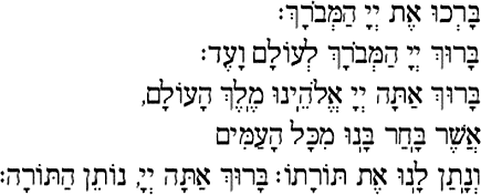
Rabbi Milder of Congregation Beth Emek in Pleasanton recently share this description of Haftorah. You'll see that he is offering a class on how to chant. The cost to non-members of Beth Emek is $60. Take a look at the details.
The highlight of Shabbat morning is the chanting of Torah and Haftarah.
What is Haftarah? In spite of the similarity of the words, Haftarah has nothing to do with the word Torah. Torah means instruction, from a root meaning “to aim.” Haftarah, however, comes from a root meaning “conclusion.” It refers to the reading from the Prophets, which was implemented by the Rabbis as a conclusion to the Torah reading.
Haftarah was introduced in order to emphasize that the books of the Prophets are sacred. Unlike Torah, however, we only read selections from the Prophets over the course of the year. These excerpts are usually related thematically to the week’s Torah portion, but for certain weeks of the year, the Haftarah has to do with the season and its holy days.
One of the things that distinguishes the Haftarah reading from the Torah reading is that they are chanted to different melodies. The “trope” signs used to indicate the melody are the same signs, but they are sung differently when applied to Haftarah. Most of Torah reading can be thought of as being in a major key, while most of Haftarah can be thought of as being in a minor key.
Learning to chant Haftarah is like learning a set of musical patterns, and then applying each pattern (2 – 6 notes) to a word. It is fascinating, musically expressive, and a wonderful way to communicate the meaning of the text.
Anyone who has a basic Hebrew reading ability can learn to chant Haftarah. One of the advantages of Haftarah over Torah chanting is that the Haftarah may be sung from a printed text, including the vowels and trope signs, unlike Torah, which is chanted from a handwritten scroll. It’s a whole lot easier to remember!
I invite you to enroll in this winter’s adult ed class, Learn to Chant Haftarah. In seven sessions, I will teach you this beautiful melody. You’ll be able to chant a Haftarah passage when you are done!
Class begins on Sunday, January 10, from 3:00 – 4:00 pm online. We will meet on Sundays when there is religious school.
Enroll now at Learn to Chant Haftarah.
Rabbi Larry Milder
NOTE: You must be able to read Hebrew enough to recognize letters and pronounce words.



 RSS Feed
RSS Feed